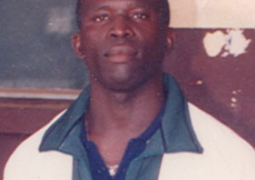
We
have all had another chance in life, given to us to manifest God’s benevolent
grace irrespective of whether we have learnt our lesson and will as a result of
that do much better in our performance and comportment as a whole. Was the
prodigal son given another chance or a second chance?
A
second chance could mean that he could benefit from a third and a fourth. A
second chance would mean that he would still be in the kindergarten stage of
his life, learning from his mistakes. The prodigal son must have learnt all
that he needed to learn from this bitter experience through his fateful
encounter in the world. The world owed him nothing; that the world is cruel and
will abuse, take advantage of you and then dump you was pretty evident.
Yes,
the world is not moved by sympathy. When the prodigal son hit rock bottom, his
so-called friends turned their backs on him. They had found joy in helping him
squander all that he had; and sad to say “... no one gave him anything.” (Luke
15:16b) The world would feed on your innocence and your immaturity to its
benefit and no one will lift a finger out of compassion or brotherly love. The
world is insensitive to your loss. When the prodigal son wanted help, none
could be found; no one was available to offer it. They had ‘sucked him dry’
like a leech, until there was nothing left to suck and they were off to look
for their next victim.
It
is at such a crossroad that we must remember God’s bountiful and unending grace
which is freely given, unmerited and unearned. It was for such a time like this
that the father could capture the return of his son “while he was still a long
way off” to be able to run towards him “... filled with compassion for him.”
(Luke 15:20) so his son – you and me - could bask in his overflowing grace.
The
father was not thinking of another chance to show the prodigal son his love, or
how not to make another mistake. This was it. The way the young man found
favour with his father would have sent him a message that this was where he
belonged and that never again should he commit such an error thinking life away
from the father’s watchful eyes would be bliss.
Why
could the act posed by the father not have been a second chance following the
opposition of his eldest son? The father had pleaded with his older brother on
these terms: “But we had to celebrate and be glad, because this brother of
yours was dead and is alive again; he was lost and is found.” (Luke 15:32) He
would not be lost and found a second, third and fourth time. He was lost once
and has been found. That was it, no more; for he has come back home.
A
second chance
Our
Lord Jesus recounted another parable which we entitle ‘the barren fig tree.’ It
reads; “A man had a fig tree planted in his vineyard, and he went to look for
fruit on it, but did not find any. So he said to the man who took care of the
vineyard, ‘For three years now I have been coming to look for fruit on this fig
tree and haven’t found any. Cut it down! Why should it use up the soil?’ ‘Sir,’
the man replied, ‘leave it alone for one more year, and I’ll dig around it and
fertilise it. If it bears fruit next year, fine! If not, then cut it down.’ ”
(Luke 13:6-9)
In
this parable, the performance of the fig tree is time-bound. ‘For three years,’
it had not produced any fruit. It had exceeded the fruit-bearing period. The
owner had been looking forward to it yielding fruit, but not a single fruit.
The obvious thing to do would be for it to be cut down. Mark you it is not a
shade tree but an economic plant with expectations for the owner. Based on its
non-performance, the owner recommended to the caretaker to fell the tree.
As
a child of God we are expected to yield fruit in season. There may be an
initial timeframe for our worthiness and fruitfulness, outside of which we
become useless trees just consuming water, space and care but of no value to
the proprietor. In this parable, the caretaker pleads for a stay of action
pending the tree’s performance; let us give it a second chance after that it
would have received special care, sufficiently watered and fertilised. The
deadline is fixed for a year. Its chance for survival was for a year after
which if there is no result, the tree will be cut down.
The
fig tree would have blown its chances of proving whether it could bear fruit or
not. It would have been given a second chance to survive, with a likely third
or fourth chance after adequate assistance would have been supplied. For its
non-performance, the verdict was clear; cut it down! Not until it benefitted
from a second chance could it have survived. So the owner agreed to assist it
further to see how it would fare. Not so with the prodigal son. With him no
deadline was given, no assessment of his performance made. He was to forget
where he had been and just take up his rightful place in his father’s house. No
condemnation whatsoever; all had been forgiven and forgotten. All the father
required was for him to come back home to the fold – where he belongs; to
become what he was meant to be – the father’s son.



